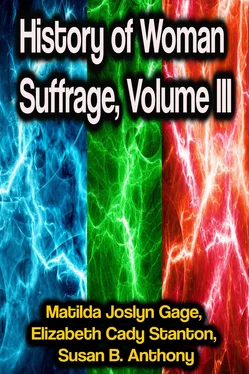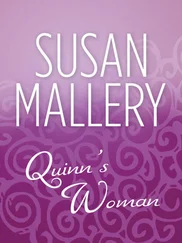By the uniform practice of the court from its organization to the present time, and by a fair construction of its rules, none but men are admitted to practice before it as attorneys and counselors. This is in accordance with immemorial usage in England, and the law and practice in all the States until within a recent period, and the court does not feel called upon to make a change until such a change is required by statute, or a more extended practice in the highest courts of the States.
With all due respect for this opinion, we beg leave to quote the rule for admission to the bar of that court as laid down in the rule book:
Rule No. 2.— Attorneys : It shall be requisite to the admission of attorneys or counselors to practice in this court, that they shall have been such for three years past in the Supreme Courts of the States to which they respectively belong, and that their private and professional character shall appear to be fair.
There is nothing in this rule or in the oath which follows it, either express or implied, which confines the membership of the bar of the United States Supreme Court to the male sex. Had any such term been included therein it would virtually be nullified by the first paragraph of the United States Revised Statutes, ratified by the forty-third congress, June 20, 1875, in which occur the following words:
In determining the meaning of the Revised Statutes, or of any act or resolution of congress passed subsequent to February 25, 1871, words importing the singular number may extend and be applied to several persons or things; words importing the masculine gender may be applied to females , etc., etc.
Now, as to "immemorial usage in England." The executive branch of that government has been vested in an honored and honorable woman for the past forty years. Is it to be supposed if this distinguished lady or any one of her accomplished daughters should ask to be heard at the bar of the Court of the Queen's Bench, the practice of which the United States Supreme Court has set up as its model, that she would be refused?
Blackstone recounts that Ann, Countess of Pembroke, held the office of sheriff of Westmoreland and exercised its duties in person. At the assizes at Appleby she sat with the judges on the bench. (See Coke on Lit., p. 326.) The Scotch sheriff is properly a judge, and by the statute 20, Geo., ii, c. 43, he must be a lawyer of three years standing.
Eleanor, Queen of Henry III. of England, in the year 1253, was appointed lady-keeper of the great seal, or the supreme chancellor of England, and sat in the Aula Regia , or King's Court. She in turn appointed Kilkenny, arch-deacon of Coventry, as the sealer of writs and common-law instruments, but the more important matters she executed in person.
Queen Elizabeth held the great seal at three several times during her remarkable reign. After the death of Lord-keeper Bacon she presided for two months in the Aula Regia .
It is claimed that "admission to the bar constitutes an office." Every woman postmaster, pension agent and notary public throughout the land is a bonded officer of the government. The Western States have elected women as school superintendents and appointed them as enrolling and engrossing clerks in their several legislatures, and as State librarians. Of what use are our seminaries and colleges for women if after they have passed through the curriculum of the schools there is for them no preferment, and no emolument; no application of the knowledge of the arts and sciences acquired, and no recognition of the excellence attained?
But this country, now in the second year of the second century of her history, is no longer in her leading strings, that she should look to Mother England for a precedent to do justice to the daughters of the land. She had to make a precedent when the first male lawyer was admitted to the bar of the United States Supreme Court. Ah! this country is one that has not hesitated when the necessity has arisen to make precedents and write them in blood. There was no precedent for this free republican government and the war of the rebellion; no precedent for the emancipation of the slave; no precedent for the labor strikes of last summer. The more extended practice, and the more extended public opinion referred to by the learned chancellor have already been accomplished. Ah! that very opinion, telegraphed throughout the land by the associated press, brought back the response of the people as on the wings of the wind asking you for that special act now so nearly consummated, which shall open this professional door to women.
Belva A. Lockwood, Attorney and Solicitor .
Washington, D. C. , March 7, 1878.
Mrs. Lockwood's bill, with Senator Edmond's adverse report, was reached on the Senate calendar April 22, 1878, and provoked a spirited discussion. Hon. A. A. Sargent, made a gallant fight in favor of the bill, introducing the following amendment:
No person shall be excluded from practicing as an attorney and counselor at law in any court of the United States on account of sex.
Mr. Sargent: Mr. President, the best evidence that members of the legal profession have no jealousy against the admission of women to the bar who have the proper learning, is shown by this document which I hold in my hand, signed by one hundred and fifty-five lawyers of the District of Columbia, embracing the most eminent men in the ranks of that profession. That there is no jealousy or consideration of impropriety on the part of the various States is shown by the fact that the legislatures of many of the States have recently admitted women to the bar; and my own State, California, has passed such a law within the last week or two; Illinois has done the same thing; so have Michigan, Minnesota, Missouri and North Carolina; and Wyoming, Utah and the District of Columbia among the territories have also done it. There is no reason in principle why women should not be admitted to this profession or the profession of medicine, provided they have the learning to enable them to be useful in those professions, and useful to themselves. Where is the propriety in opening our colleges, our higher institutions of learning, or any institutions of learning, to women, and then when they have acquired in the race with men the cultivation for higher employment, to shut them out? There certainly is none. We should either restrict the laws allowing the liberal education of women, or, we should allow them to exercise the talents which are cultivated at the public expense in such departments of enterprise and knowledge as will be useful to society and will enable them to gain a living. The tendency is in this direction. I believe the time has passed to consider it a ridiculous thing for women to appear upon the lecture platform or in the pulpit, for women to attend to the treatment of diseases as physicians and nurses, to engage in any literary employment, or appear at the bar. Some excellent women in the United States are now practicing at the bar, acceptably received before courts and juries; and when they have conducted their cases to a successful issue or an unsuccessful one in any court below, why should the United States courts to which an appeal may be taken and where their adversaries of the male sex may follow the case up, why should these courts be closed to these women? * * *
Mr. Garland: I should like to ask the senator from California if the courts of the United States cannot admit them upon their own motion anyhow?
Mr. Sargent: I think there is nothing in the law prohibiting it, but the Supreme Court of the United States recently in passing upon the question of the admission of a certain lady, said that until some legislation took place they did not like to depart from the precedent set in England, or until there was more general practice among the States. The learned chief-justice, perhaps, did not sufficiently reflect when he stated that there were no English precedents. The fact is that Elizabeth herself sat in the Aula Regia and administered the law, and in both Scotland and England women have fulfilled the function of judges. The instances are not numerous but they are well established in history. I myself have had my attention called to the fact that in the various States the women are now admitted by special legislation to the bar. I do not think there is anything in the law, properly considered, that would debar a woman from coming into this profession. I think the Supreme Court should not have required further legislation, but it seems to have done so, and that makes the necessity for the amendment which I have now offered.
Читать дальше












